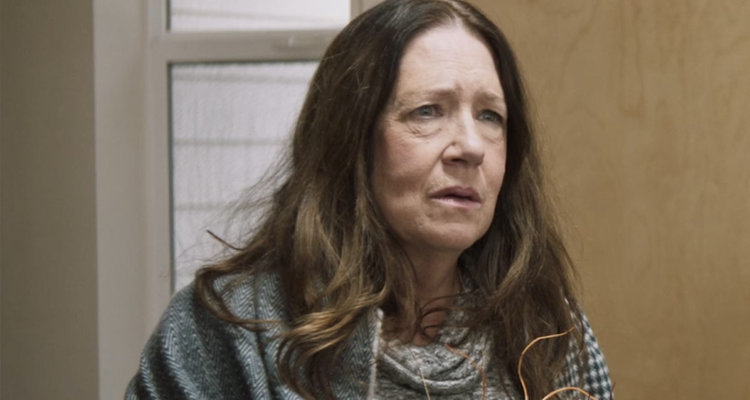Ann Dowd has been a working actor in film and television for over 35 years. She’s an Emmy winner for “The Handmaid’s Tale,” won Best Supporting Actress honor from the National Board of Review for 2012’s “Compliance” and earned Spirit Award, Screen Actors Guild, and Golden Globe Award nominations. The one thing that’s missing? An Oscar nomination. That might change depending on how the Academy takes to her new role in “Mass,” which debuts today in limited release.
The directorial debut of Fran Kranz, the Bleecker Street release centers on two married couples whose sons were part of a shooting at an Idaho High School. A few years after the tragedy, Jay and Gail (Jason Isaacs and Martha Plimpton) are still in pain over the death of their child. He was murdered by a schoolmate whose parents, Richard and Linda (Reed Birney and Dowd), are still haunted with mountains of guilt over the incident. The film focuses on the parents convening for a private meeting to hash out their feelings at a local church’s community meeting room.
Dowd has received considerable awards season buzz since “Mass” debuted virtually at the 2021 Sundance Film Festival in January. The question is whether SAG and AMPAS members will stick with the picture as almost all of the film takes place in the aforementioned one room. Even with more than positive reviews (currently, a very good 78 on Metacritic) there is one person who likely won’t be seeing the film, Dowd herself.
“It’s not something I would be able to do now. I have not watched the film because the experience of doing it was so profound,” Dowd admits. “I don’t know how to describe that. I imagine one day I will, but how an audience receives it is entirely their private experience. Do you know what I mean?”
She continues, noting, “I don’t need to see it. I’m happy to talk to anybody about it if they so wish, but my part in it was the doing, which for which I’m so deeply grateful, and that’s where I stand with it.”
“The Leftovers” and “Hereditary” star had never met Kranz before he sent her the script for consideration but was blown away by “the beauty of it, the truth of it.” She was also grateful the production, which wrapped in February 2020, occurred right before the pandemic hit. That was a bit of a lifesaver. However, one thing she didn’t feel was necessary was speaking to real-life parents of high school shooting victims.
“I would never intrude on parents who have gone through this,” Dowd says. “No, no, I didn’t. I wasn’t inclined to do so. It felt like a terrible invasion of personal grief.”

What’s most remarkable about the film is how little time the cast had to rehearse such dense dialogue. They had just two and a half days (“and three hours to be specific,” Dowd notes) to rehearse around a table in New York. During those readthroughs, Kranz would adjust where needed because the shooting schedule would be insanely tight.
“Most importantly, we came to trust one another and to realize that we were all here for the same reason, with the same hopes,” Dowd says. “That was two days, and we didn’t rehearse, per se; we simply worked through table work, call it. And then, we met again in Idaho three weeks later, and we began filming. We filmed four days for the stuff that happened outside the room, and then the last eight days were spent shooting in chronological order, the scenes around the table.”
Yes, just 12 days of shooting. 12 days that may end up taking Dowd to Hollywood’s awards mountaintop.
“Mass” opens in limited release on Friday.


